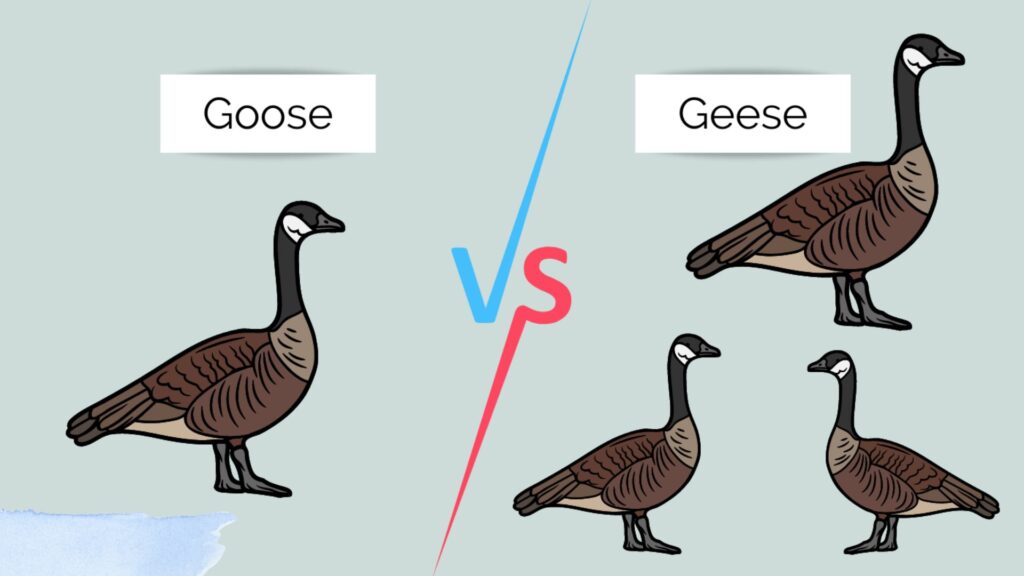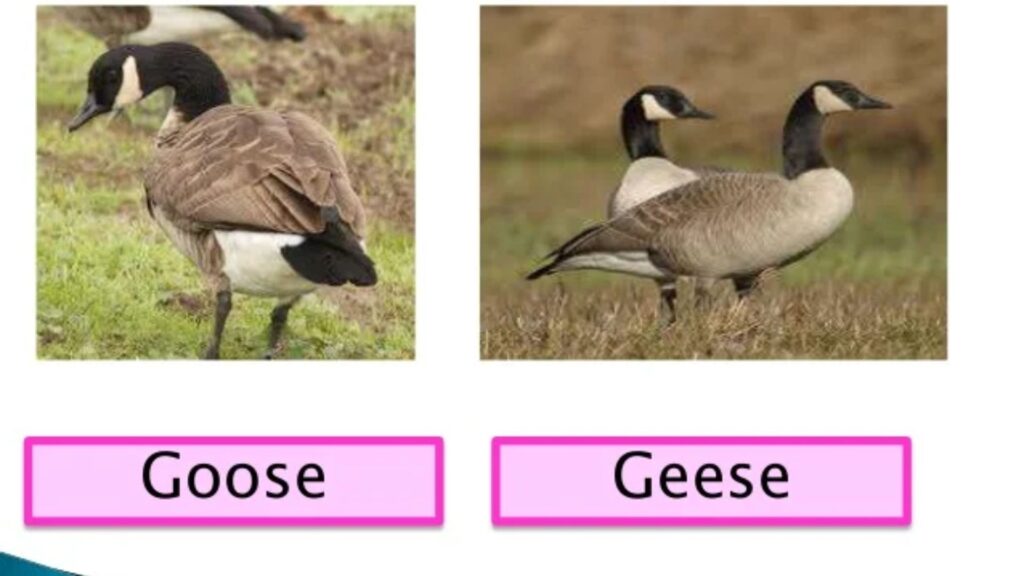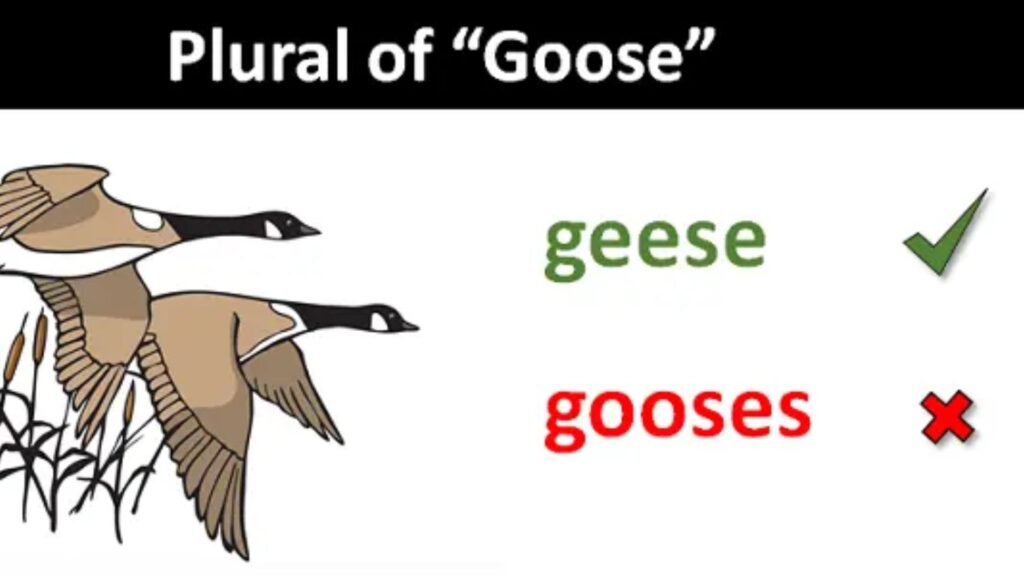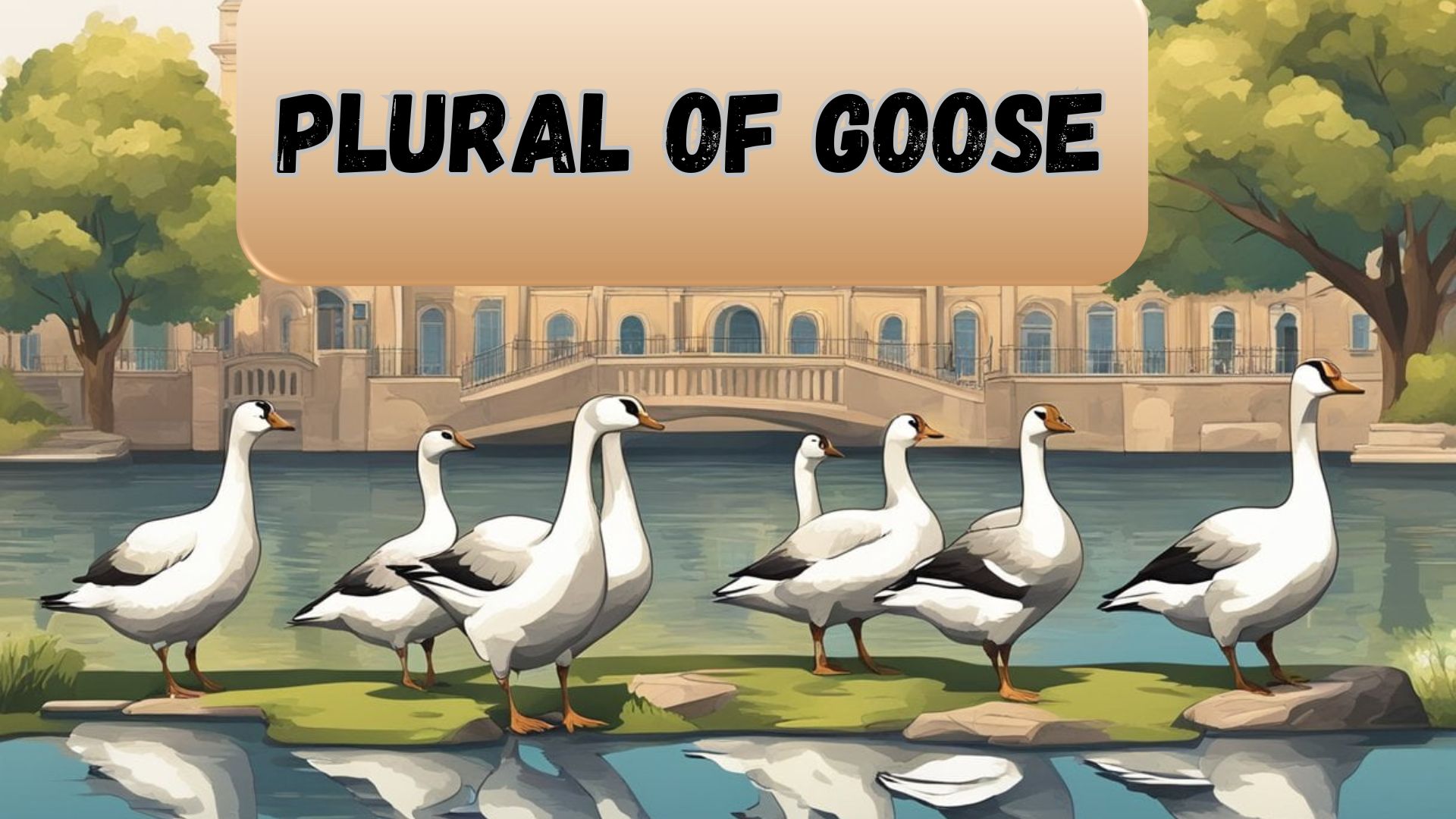It’s a common question one that’s puzzled learners, writers, and even native English speakers: What’s the plural of “goose”? Is it geese, gooses, or the rarely seen geeses? If you’ve ever typed a sentence and second-guessed yourself mid-keystroke, you’re in good company. English can be quirky, especially with irregular plural forms.
Let’s break this down clearly and naturally no grammar jargon overload, just real answers, useful examples, and a few surprising facts about our feathered friends.
Goose vs Geese: The Simple Answer

Here it is, short and sweet:
✅ Singular: Goose
✅ Plural: Geese
So yes, “geese” is the correct plural of goose. The others? We’ll get to those in a second.
This follows a classic irregular noun pattern, where the vowel in the word changes instead of just tacking on an “s” or “es.” Kind of like:
- Tooth → Teeth
- Foot → Feet
- Goose → Geese
This vowel switch (called ablaut) traces back to Old English and Proto-Germanic roots where many English irregularities were born.
Why Not Gooses or Geeses?
It makes sense to assume “gooses” would be the plural, right? After all, we say:
- Dog → Dogs
- Cat → Cats
- Horse → Horses
But “goose” doesn’t follow the standard pluralization rules because it’s part of a class of irregular plural nouns that undergo vowel change, not suffix change.
And as for “geeses”? That’s just an incorrect double plural adding “-es” to a word that’s already plural. Imagine saying “childs” instead of “children.” Not quite right.
❌ I saw five gooses at the park.
❌ There were many geeses flying south.
✅ A flock of geese landed on the pond.
Let’s make it crystal clear with a real-world example.
📧 Email Example: Correct Usage of ‘Geese’
Subject: Wildlife Photography Update
To: Claire
From: Mason
Hi Claire,
Just wanted to share some shots from yesterday’s hike. I got super lucky caught a whole gaggle of geese waddling near the lake just after sunrise! The lighting was perfect. You’d have loved the way their feathers caught the golden hour glow.
Let me know if you want to use any for your blog.
Cheers,
Mason
Collective Nouns: A Gaggle, Skein, or Wedge of Geese?

Here’s where it gets fun. When you’re talking about a group of geese, English gives you some poetic options:
- On the ground: A gaggle of geese
- In flight: A skein, wedge, or team of geese
Each term paints a different picture. A skein usually refers to geese in V-formation, a wedge highlights their arrowhead shape in flight, and gaggle gives that image of waddling, honking chaos on land.
These are part of a fascinating category known as animal group names and “gaggle” is one of the most well-known.
Bonus Terms: Gander, Dame, and Gosling
Let’s go a step further. Here are a few gender-specific and age-related goose terms:
- Gander – Male goose
- Dame – Female goose (rare but historically used)
- Gosling – Baby goose
So if you’re writing a nature guide or simply want to impress your friends during trivia night, throw in a sentence like:
“The gander led the group while the goslings followed closely behind.”
Or how about this one:
“Ryan is such a silly goose he tried to photograph a gaggle of geese with a potato chip bag on his head.”
Yes, we’re bringing in idioms next.
Goose in Idioms & Expressions
The word “goose” pops up in a bunch of English idioms, adding color, humor, or even warning to a conversation. Here are a few you’ve probably heard:
| Idiom | Meaning |
|---|---|
| Silly goose | A playful or harmless insult; someone acting goofy |
| One’s goose is cooked | Someone’s in trouble or has failed completely |
| What’s good for the goose… | A call for fairness or equal treatment |
| Wild goose chase | A hopeless or futile pursuit |
| Kill the goose that lays… | To destroy a valuable resource out of greed or impatience |
| Have a gander | To take a look |
Want to use one in a sentence? Try this:
“Trying to find my lost earring in that cornfield was a total wild goose chase.”
Or this playful email sign-off:
📧 Email Example: Idiomatic Use
Subject: Weekend Plans
To: Priya
From: Jonah
Hey Priya,
Are we still on for that mini road trip? Or was that just another wild goose chase idea you had at 2am?
Let me know I’ll pack snacks either way.
Cheers,
Jonah
The Grammar Rule: Irregular Plural Nouns
To understand why “geese” is correct, let’s put it into a grammar context. English nouns typically become plural by adding -s or -es, but there are exceptions.
Irregular plural nouns change their spelling altogether. Some examples:
| Singular | Plural |
|---|---|
| Man | Men |
| Woman | Women |
| Mouse | Mice |
| Child | Children |
| Goose | Geese |
Notice the vowel shift in most of these. That’s the same mechanism at work in “goose → geese.” There’s no “rule” you can always follow—you just have to memorize these special cases.
If you ever wonder how to pluralize “goose,” just remember: it acts more like “foot” and less like “book.”
Etymology: Where Did ‘Goose’ and ‘Geese’ Come From?
The word “goose” comes from Old English “gōs”, which evolved from the Proto-Germanic “gans”. Over centuries, vowel changes in English led to the plural becoming “gēs,” which evolved into today’s geese.
These shifts are part of historical phonology how sounds in a language morph over time.
So while “gooses” might sound logical today, history had other plans.
Common Mistakes & How to Fix Them

Many learners make mistakes like:
- Saying gooses instead of geese
- Writing geeses (a double plural)
- Using the singular when a plural is needed
Let’s fix them with quick before-and-after examples:
| ❌ Incorrect | ✅ Correct |
|---|---|
| The park had many gooses. | The park had many geese. |
| I saw two geeses flying by. | I saw two geese flying by. |
| Look at that group of goose! | Look at that group of geese! |
Quick Reference Table
Here’s a one-stop chart for everything goose-related:
| Term | Definition |
|---|---|
| Goose | Singular noun; one bird |
| Geese | Plural noun; more than one goose |
| Gooses | ❌ Incorrect plural form |
| Geeses | ❌ Incorrect and nonstandard |
| Gander | Male goose |
| Dame | Female goose (less common) |
| Gosling | Baby goose |
| Gaggle | Group of geese on the ground |
| Skein/Wedge | Group of geese in flight |
Final Thoughts
So what’s the plural of goose? By now, it should be as clear as a reflection in still water it’s geese. Not “gooses,” not “geeses,” just geese.
It’s one of those charming English irregularities that keeps the language vibrant and ever-evolving. Whether you’re writing an essay, composing a cheeky email, or just wondering aloud at the park, now you’ve got the facts and maybe even a few idioms to sprinkle in.
Next time someone says “gooses,” give them a knowing smile… and maybe suggest they take a gander at this guide.

